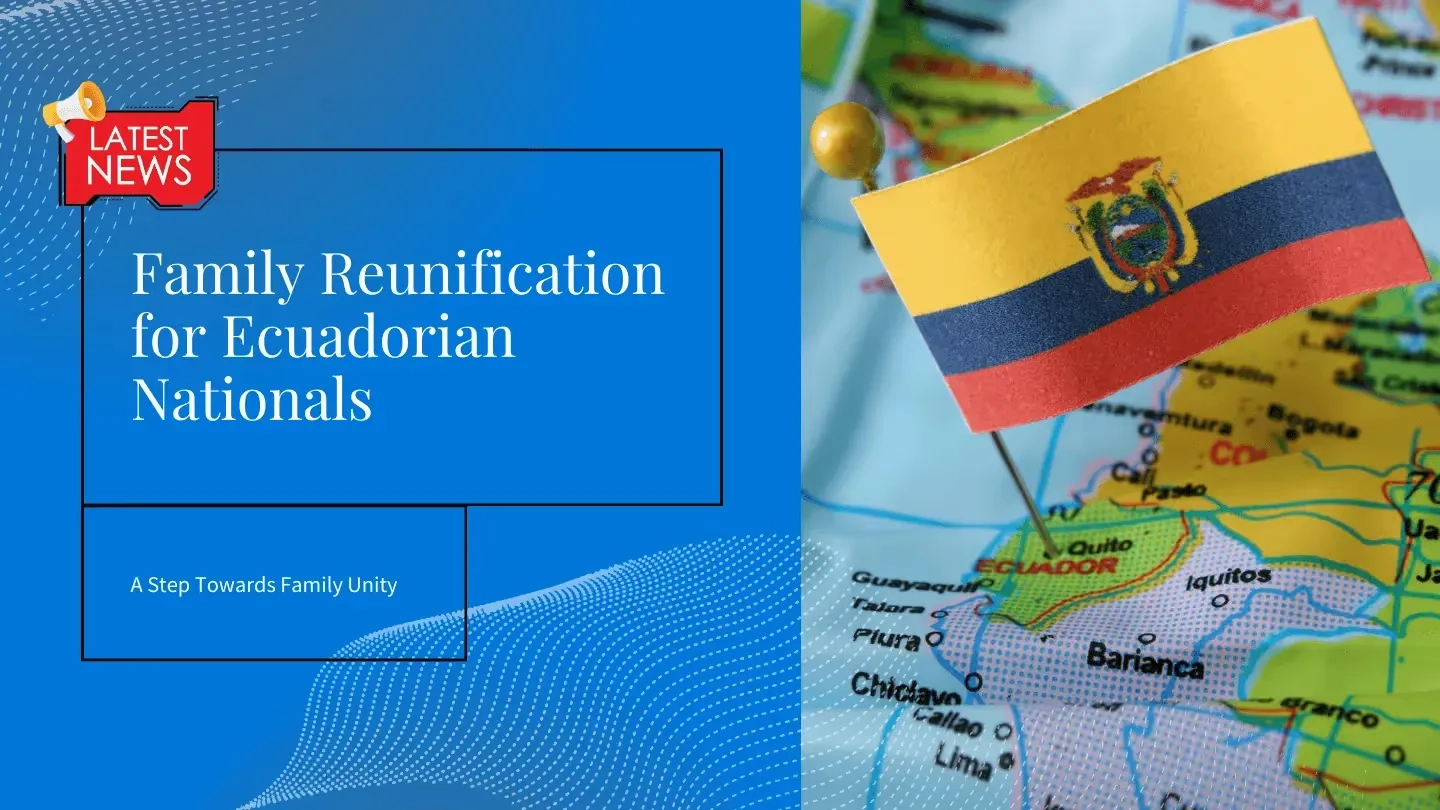In a significant move aimed at promoting family unity and enhancing lawful pathways for immigration, the Department of Homeland Security (DHS) has introduced a family reunification parole process for certain nationals of Ecuador. This development is part of the Biden-Harris Administration's strategy to blend expanded legal avenues with strengthened enforcement, ultimately curbing irregular migration.
A Step Towards Family Unity
Secretary of Homeland Security, Alejandro N. Mayorkas, emphasized the significance of the Family Reunification Parole (FRP) process, saying, "The Family Reunification Parole process promotes family unity consistent with our laws and our values."
The process primarily targets certain Ecuadorian nationals with family members who are U.S. citizens or lawful permanent residents. These individuals have received approval to join their families in the United States. It allows Ecuadorian nationals and their immediate family members to be considered for parole on a case-by-case basis for up to three years. During this period, they can await their application to become lawful permanent residents.
The move is in alignment with the comprehensive measures announced in April by the DHS and the Department of State. These measures are consistent with the objectives outlined in the Los Angeles Declaration on Migration and Protection, aiming to strengthen efforts at national, regional, and hemispheric levels to facilitate safe, orderly, humane, and regular migration.
Eligibility and Application Process
Ecuadorian nationals eligible for consideration under the FRP process must be beneficiaries of an approved I-130 Petition for Alien Relative. To qualify, beneficiaries must be outside of the United States and meet all the required screening, vetting, and medical requirements. Importantly, they should not have already received an immigrant visa.
The Family Reunification Parole process commences with the Department of State extending an invitation to the U.S. citizen or lawful permanent resident family member who filed a Form I-130 on behalf of the Ecuadorian beneficiary. Qualifying beneficiaries include certain children and siblings of U.S. citizens, as well as specific spouses and children of lawful permanent residents.
The invited petitioner can initiate the process by submitting a request on behalf of the beneficiary and eligible family members. This request is to be considered for advance travel authorization and parole.
Under this process, parole is granted on a case-by-case and temporary basis. Those paroled into the United States can typically receive parole for up to three years. Furthermore, they are eligible to request employment authorization while awaiting their immigrant visa to become available. Once their immigrant visa is accessible, they may apply for adjustment of status by submitting Form I-485.
The Family Reunification Parole process for certain Ecuadorian nationals exemplifies the commitment to building a more inclusive and streamlined immigration system that emphasizes family unity and the well-being of beneficiaries. It marks a significant step in balancing humanitarian values with legal immigration pathways.
Carve Your Niche in Immigration Law
Unlock the potential of your personal brand and set yourself apart in the world of immigration law. Harness the tools, strategies, and insights to become the go-to expert in the immigration law landscape.
Download Now
About the author
James E. Pittman is a distinguished immigration attorney, co-founder of 8am DocketWise, and Director and Subject Matter Expert (SME) in immigration at 8am, a leading platform delivering purpose-built solutions for legal and accounting professionals. A former patent attorney, he later built a highly regarded U.S. immigration practice and is a sought-after CLE educator on immigration law and ethics. James is admitted in NY, NJ, before the USPTO, and hosts the DocketWise video podcast Immigration Uncovered.

